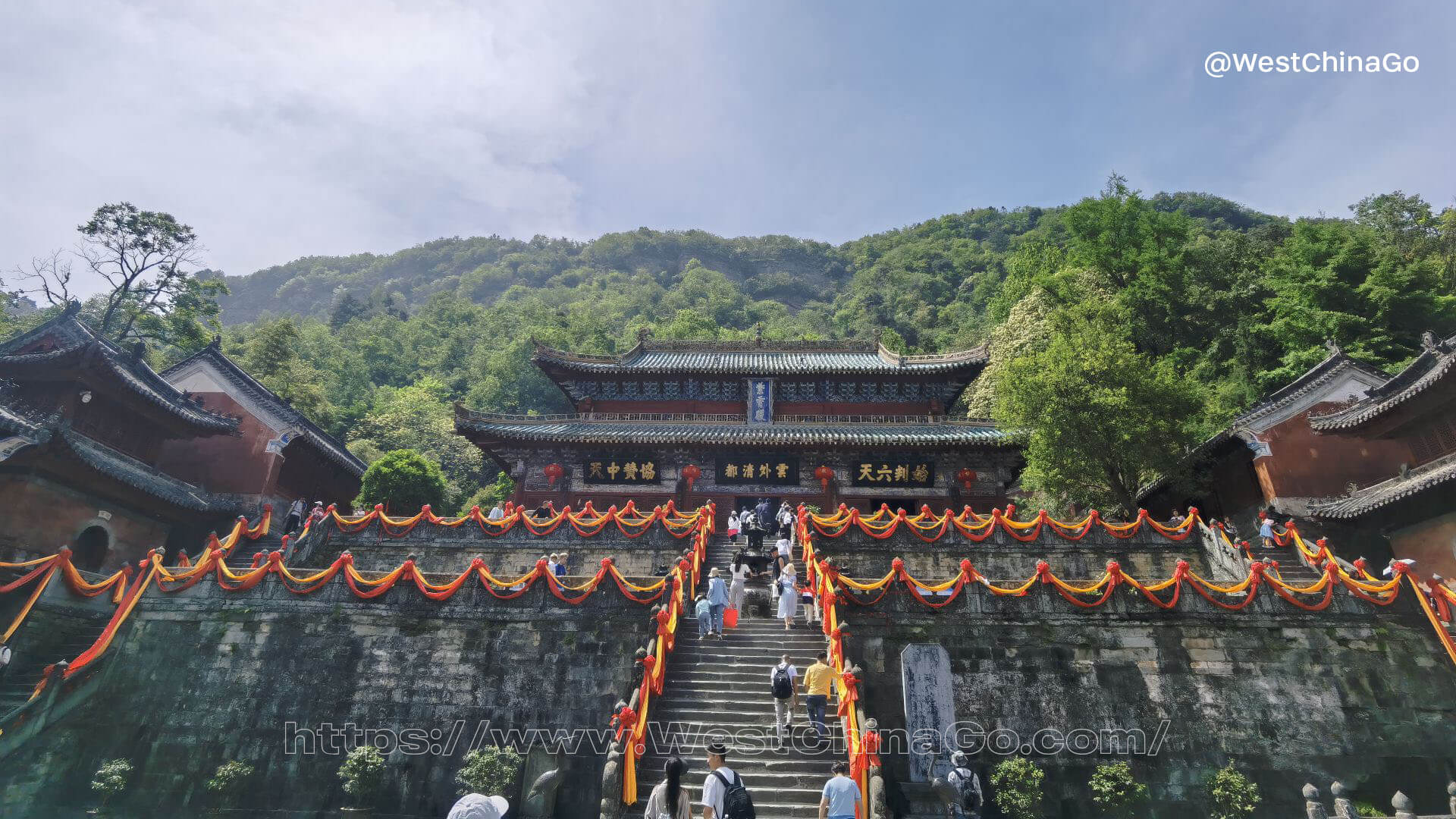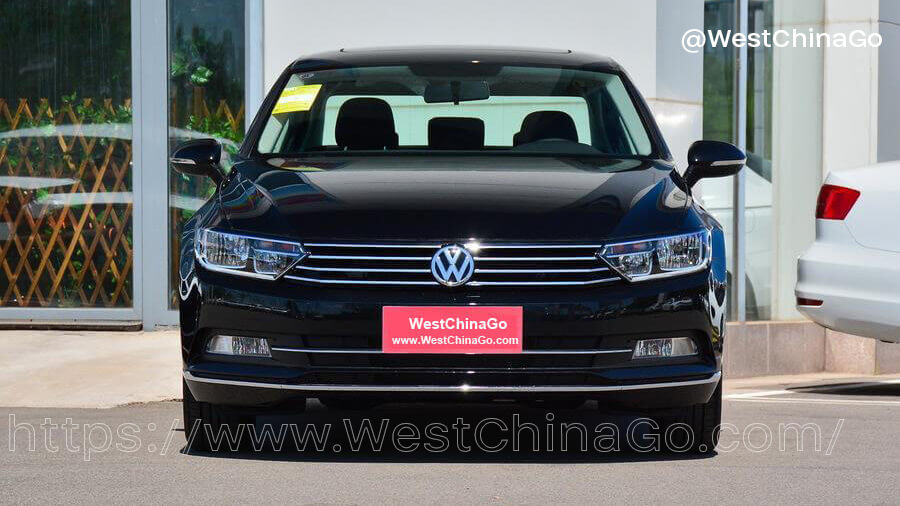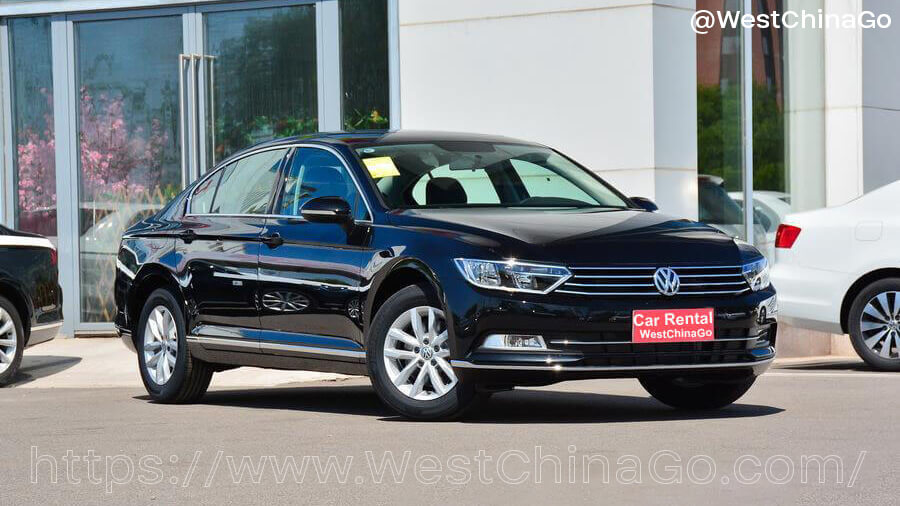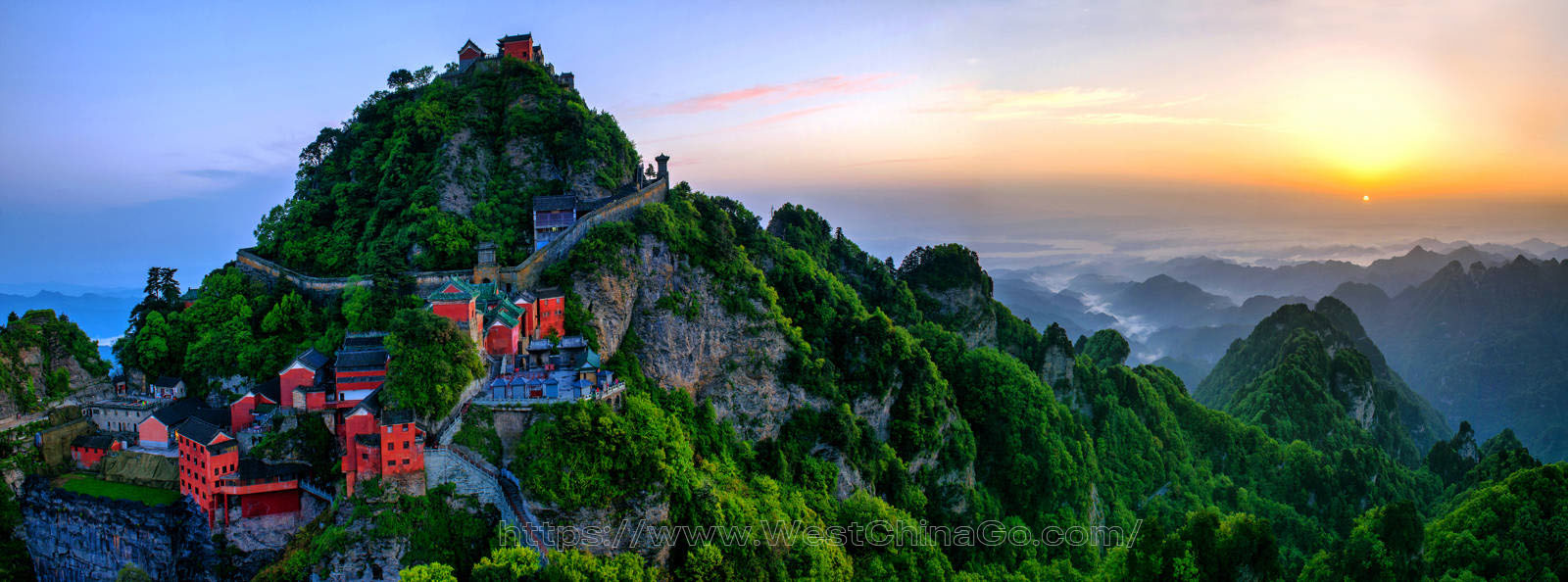
Wudang Mountain
- Chinese name: 武当山风景名胜区
- Foreign name: Wudang Mountain Scenic Spot
- location: within the territory of Danjiangkou City, Hubei Province 湖北省十堰市丹江口市内
- Climate conditions: subtropical monsoon climate
- Opening Hours: 08:00-16:30 (Monday Friday, January 1st to December 31st)
- Attraction level: AAAAA
- Famous tourist attractions: Yuanhe Palace, Yuzhen Palace, Xuanyue Gate, Jingle Palace, Mozhen Well, Yuxu Rock Ecological Park, Monkey Valley, Ancient Copper Hall, Golden Hall, Taihe Palace, Five Dragon Palace
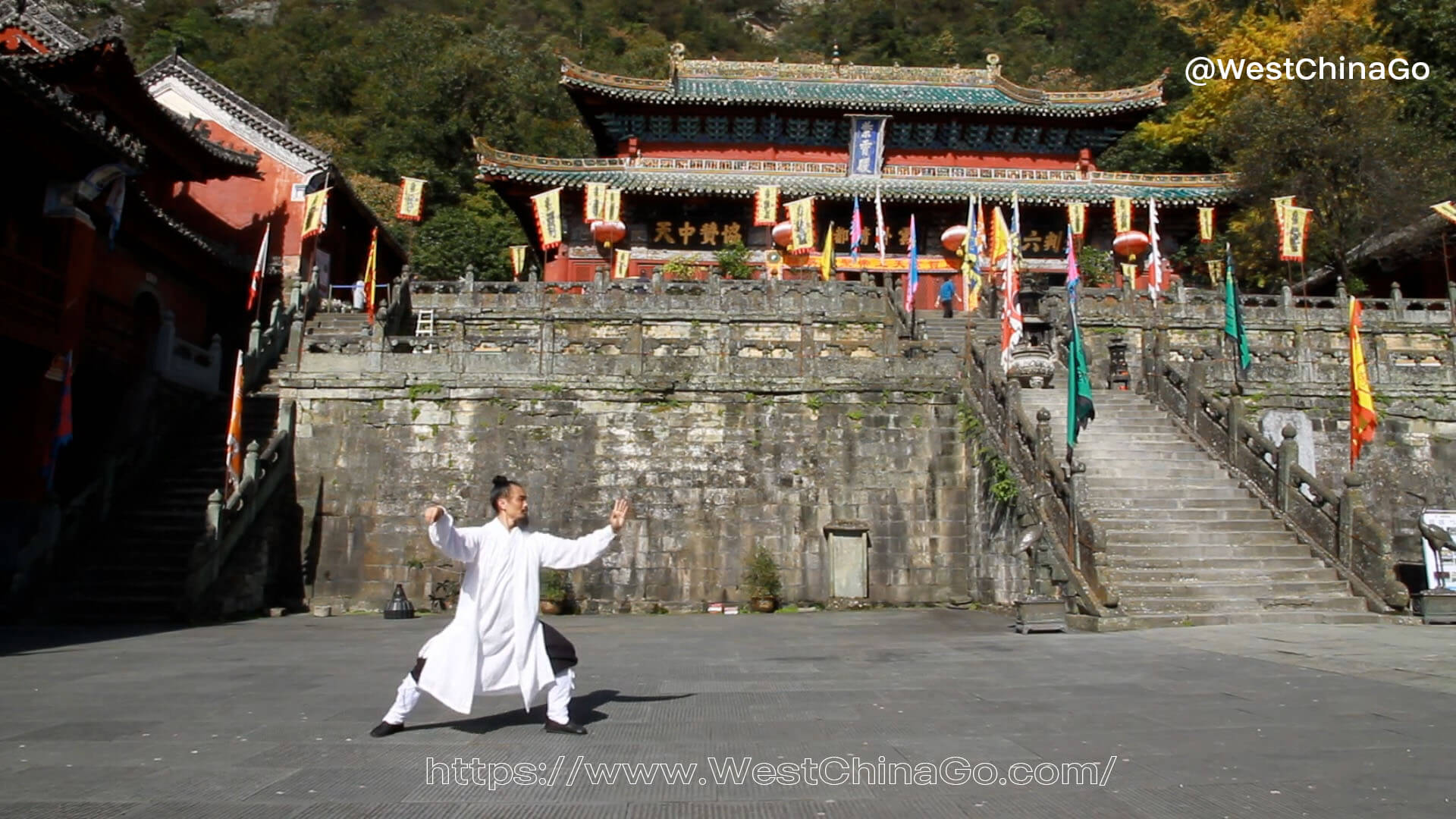
Why Wudang Mountain
An old saying: The first principle of Taoism: “Tao follows nature”. Go with the nature, don’t be too deliberate, “off extremes, off extravagance, off the pinnacle of desire”(去甚,去奢,去泰). People should treat nature, others, and themselves with a natural attitude (three levels).
So there will be “natural – relieved – of course – happy”.自然——释然——当然——怡然
The famous Taoist holy land – Wudang Mountain is a good choice
Here you can see relatively well-preserved Taoist buildings, feel the truth and wisdom of Taoism with your heart, and calm your impetuous heart; pass through the valley of ghosts here, hear crisp birdsong, gurgling water, Integrate yourself into nature and absorb the essence of heaven and earth.
The biggest problem for people today is that they don’t need much and want too much.People’s mind is too chaotic and think too much. That’s why you’re anxious, that’s why you’re afraid, that’s why you’re restless, and that’s why you’re sick. Coming to Wudang Mountain is to learn to subtract from life in this holy mountain. In fact, you don’t need so many, you just need to take this step well.
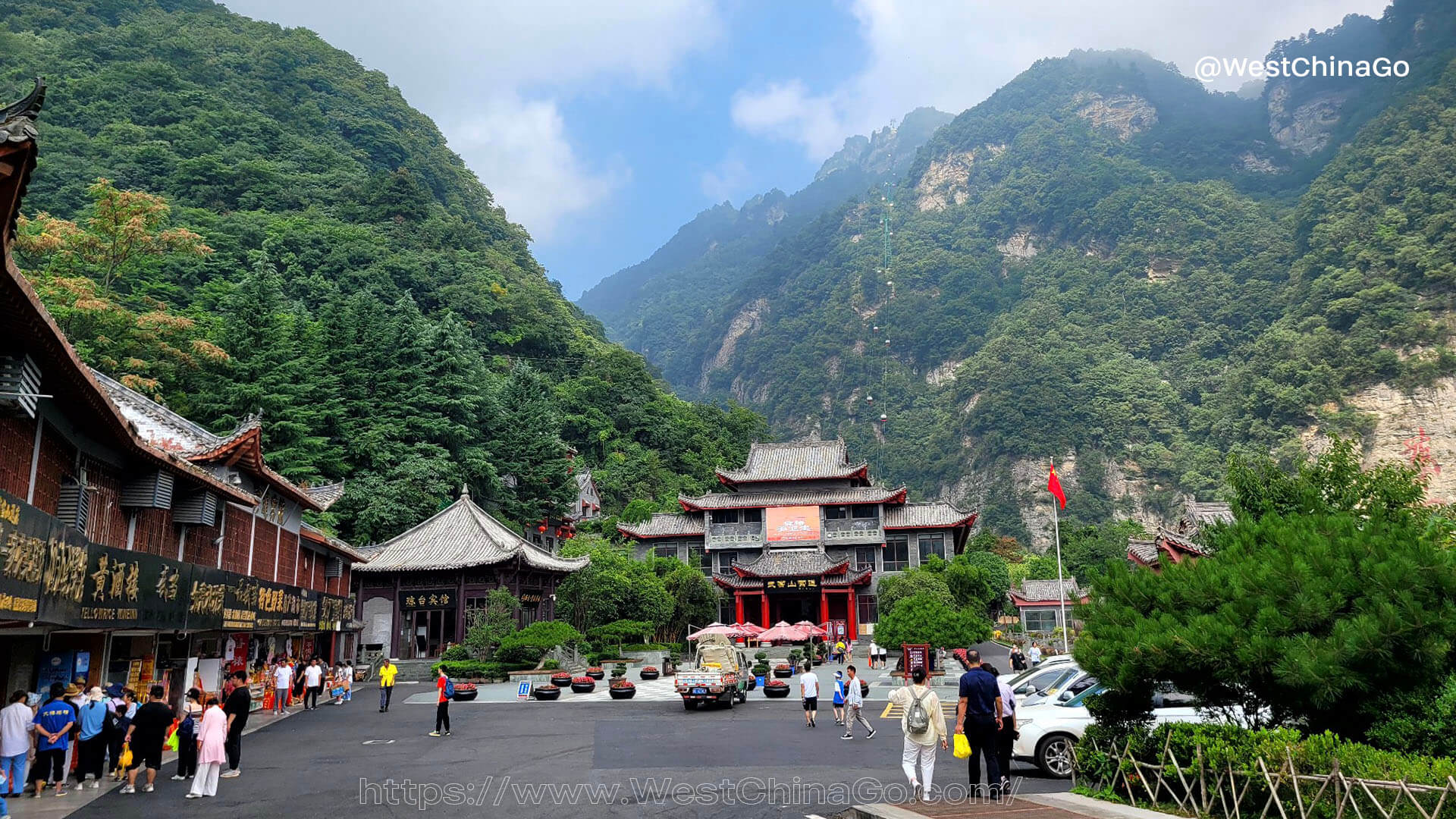
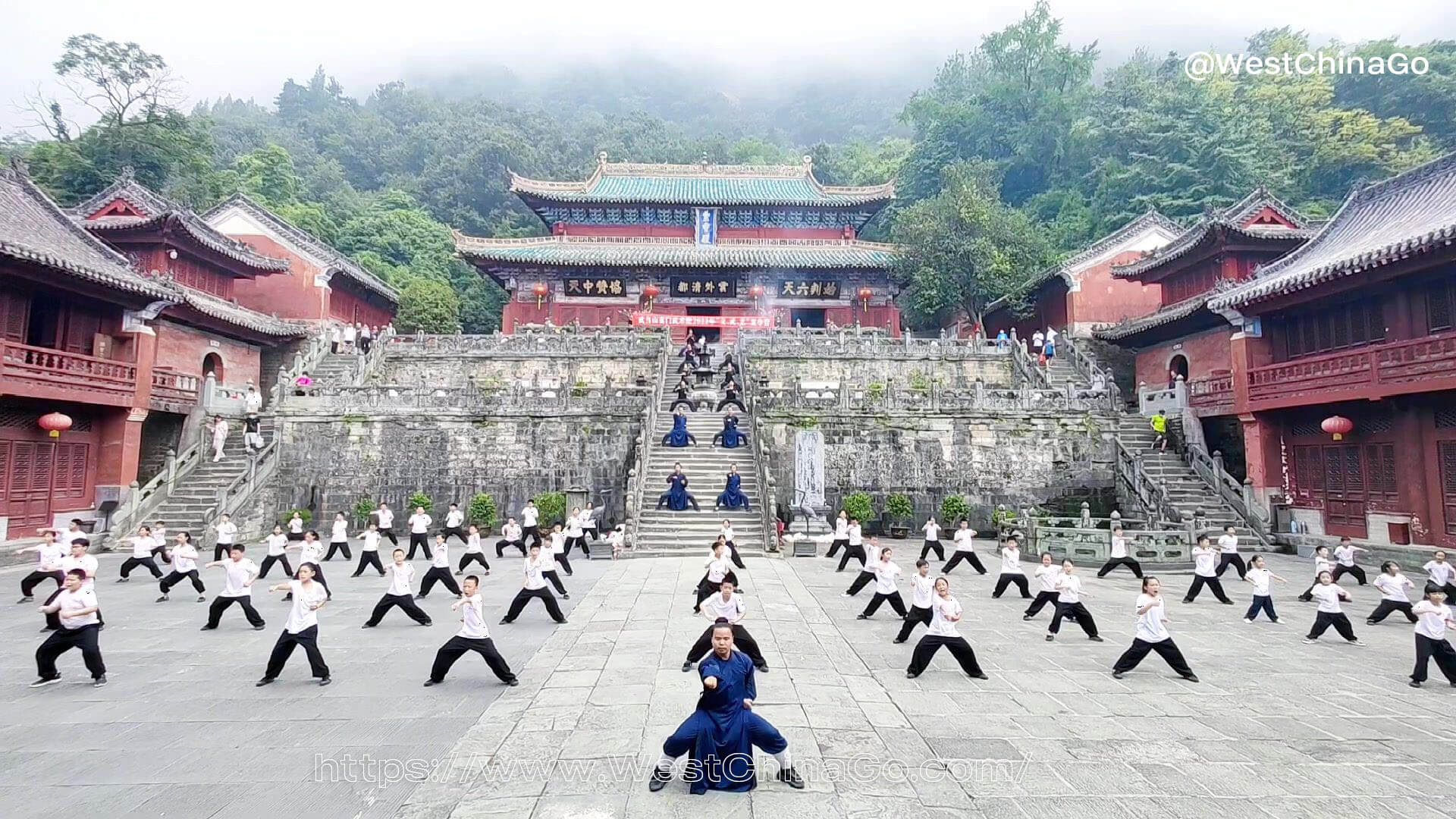
Wudang Mountain
Wudang Mountain, also known as Taihe Mountain, is located in Danjiangkou City, Shiyan City, Hubei Province. It is a famous Taoist destination in China, one of the first batch of national key scenic spots, and also a world cultural heritage site
Here is the world’s largest religious complex (stretching 140 miles); here is also the world’s most spectacular natural wonder – 72 peaks towards the top, the world’s most sacred cultural wonder – Tianxuanwu, is “the most beautiful place in the world One of the “Great Mountains”, known as the “Dayue”, can be described as a great mountain, a great river, a great humanity, mysterious, magical and sacred!
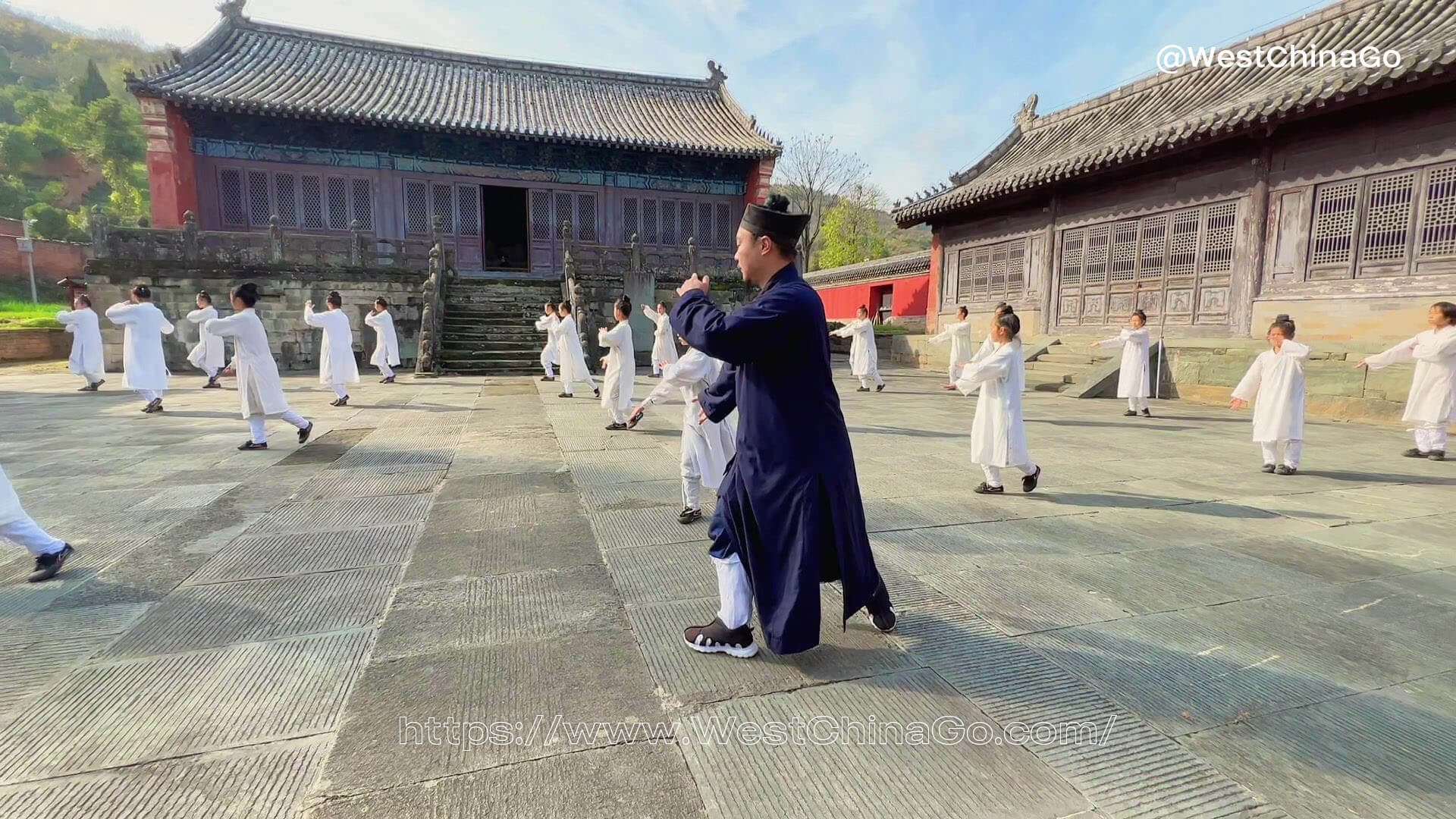
Natural Scenery
Wudang Mountain stretches for 800 miles, with its natural scenery dominated by grandeur and multiple characteristics such as danger, wonder, seclusion, and beauty. Since the Yuan Dynasty, there have been 72 peaks, 36 rocks, 24 streams, 11 caves, 3 pools, 9 springs, 10 stones, 9 wells, 10 ponds, 9 platforms, etc. The main peak, Tianzhu Peak, stands at an altitude of 1612 meters, like a precious pillar made of gold and jade, towering over the sky and standing at the top of the peaks. The surrounding mountains tilt towards the main peak from all directions, forming a unique natural wonder of “72 peaks facing the top and 24 streams flowing long”. It is known as the “unparalleled scenic spot since ancient times, the number one immortal mountain in the world”.
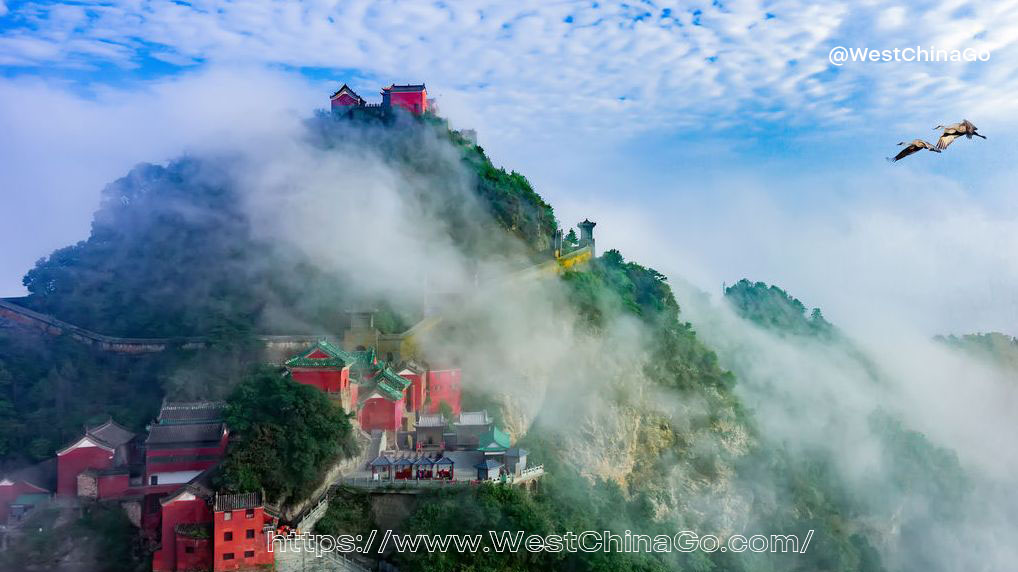
The Taoist culture
The Taoist culture of Wudang Mountain is extensive and profound, with a long history. Since the Eastern Han Dynasty, there have been Taoist monks who have built thatched temples on Wudang Mountain and devoted themselves to cultivation. Subsequently, it gradually became a holy land for Taoist activities in the Central Plains. Wudang Mountain Taoism was highly respected by feudal emperors and began in the early Tang Dynasty. During the Zhenguan period of the Tang Dynasty (627-649), when there was a severe drought, Emperor Taizong Li Shimin sent the prefectural official Yao Jian to Wudang Mountain to pray for rain and spiritual enlightenment. Later, the “Five Dragon Temple” was built at Lingying Peak. From the Song Dynasty to the Qing Dynasty, emperors of all dynasties highly praised the Zhenwu God of Wudang Mountain and revered him as the “God of the Country and Family”. During the Yuan Dynasty, Taoism cultivated hundreds of hectares of land and raised tens of thousands of people, including 9 palaces, 8 temples, and more than 100 temples, altars, pavilions, platforms, and bridges. By the Ming Dynasty, it reached its peak. In the tenth year of the Yongle reign (1412), important officials led over 200000 soldiers, civilians, and craftsmen. With 12 years of effort, 33 Taoist temples, including 9 palaces and 9 temples, were built. There were as few as 300-400 Taoists and as many as 500-600 Taoists in various palaces and temples throughout the mountain. The Taoist temple in Wudang was unprecedentedly grand, becoming a Wudang Taoist temple directly controlled by the Ming Dynasty emperor. Therefore, Wudang Mountain is known as the “Imperial Family Temple”. Wudang Mountain is renowned for its Taoist cultural relics. In addition to ancient architectural complexes, rulers of all dynasties and believers from all directions, especially during the peak of the Ming Dynasty, produced tens of thousands of gold, silver, copper, iron, tin, jade, pearls, stones, mud, silk, wood and other textures of deities and artifacts, which were placed on Wudang Mountain, making the various palaces and palaces of Wudang Mountain magnificent and known as the “Golden and White Jade World”. Although most of the treasures have been lost, a total of over 7000 registered cultural relics still exist throughout the mountain to this day. It has extremely high scientific research and artistic appreciation value. Wudang Taoist music, renowned for its reputation, is an important component of Wudang Taoist culture. Since the establishment of the “Five Dragon Temple” by Emperor Taizong of Tang Dynasty, Wudang Mountain has always been an important Taoist site for emperors, generals, and the masses to pray for blessings and avoid disasters. The unique Taoist music with unique charm integrates palace, folk, and religious music, with a solemn and mysterious unique style.
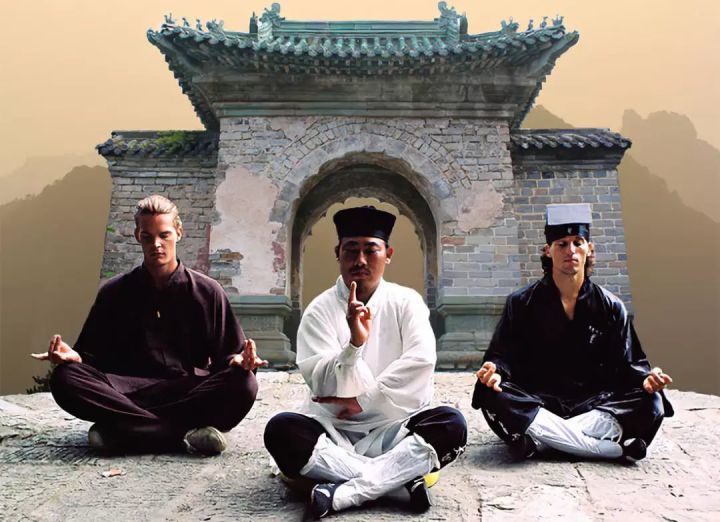
Taoist Cultivation and Refinement
- meditation techniques
- Learning Tai Chi
- practise asceticism
- Inner Peace
- wellness
- Wudang Kung Fu
- ……
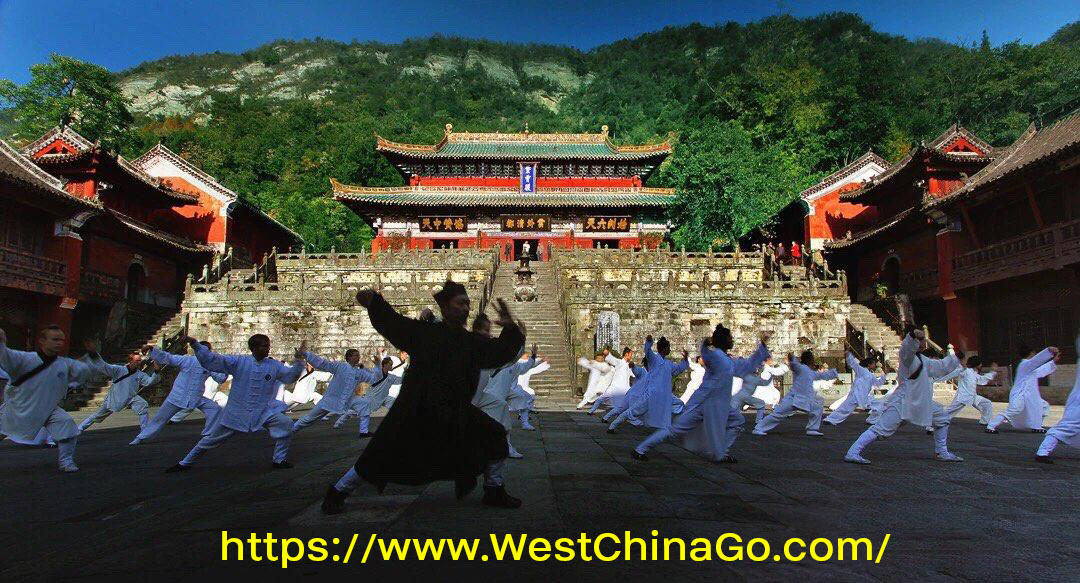
Wudang Mountain Taoist Traditional Martial Arts School (Kungfu Academy)武当山道家传统武术馆
- Address: 湖北省十堰市 武当山
- Website:https://www.wudangwushu.com/
- Email: wudang.wushu.info@gmail.com
- Tel: (+86) 15771097969
武当玄门武术馆
- 湖北省十堰市丹江口市G316原汁原味特色农庄对面
- http://www.wdxmwsg.com/
 Email:2419313169@qq.com
Email:2419313169@qq.com- 联系人:李师傅

- (+86) 0719-5659010 13147286699 13098884878
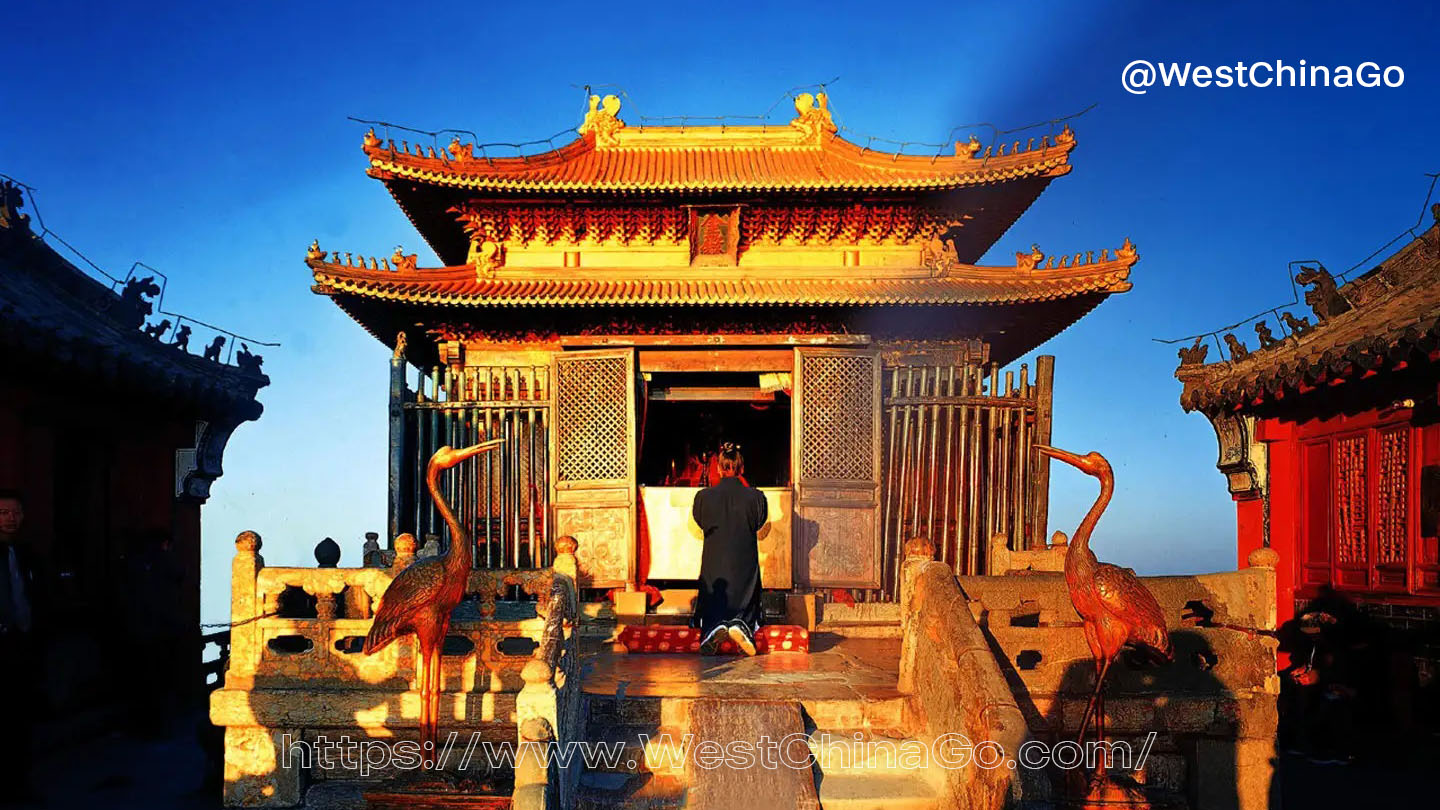
Wudang Mountain
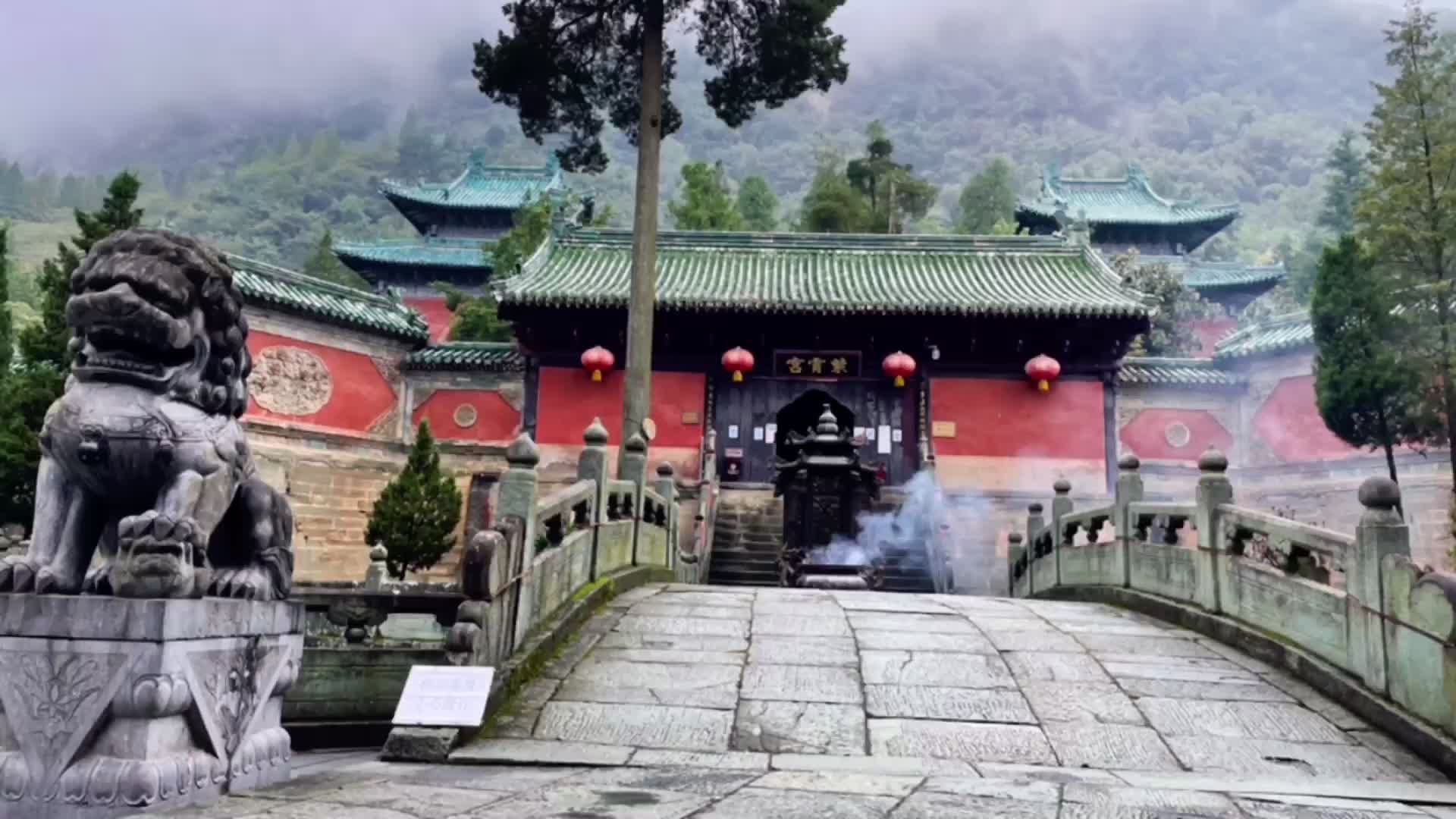
Wudang Mountain Video
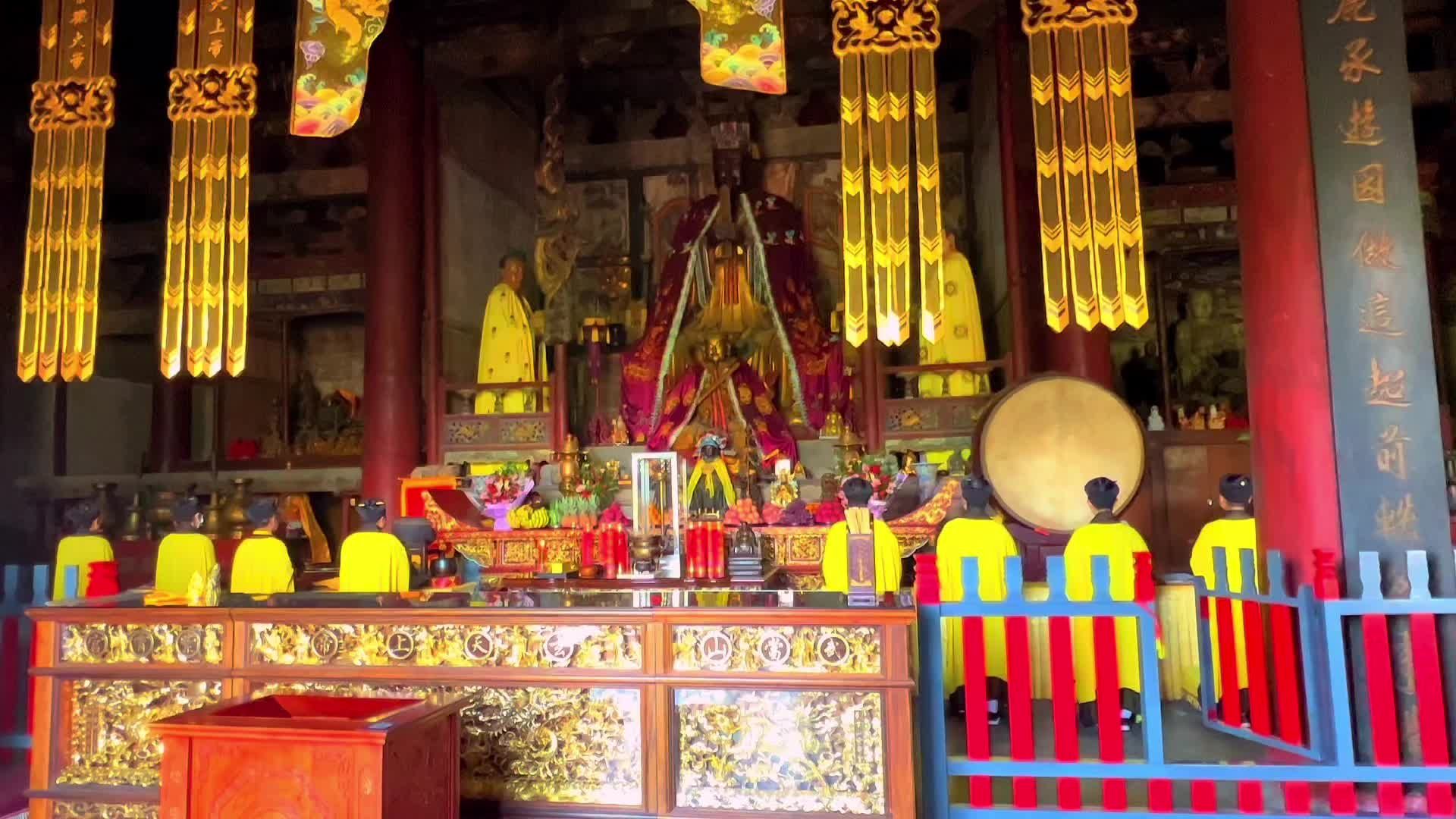
Wudang Mountain Toruist Map
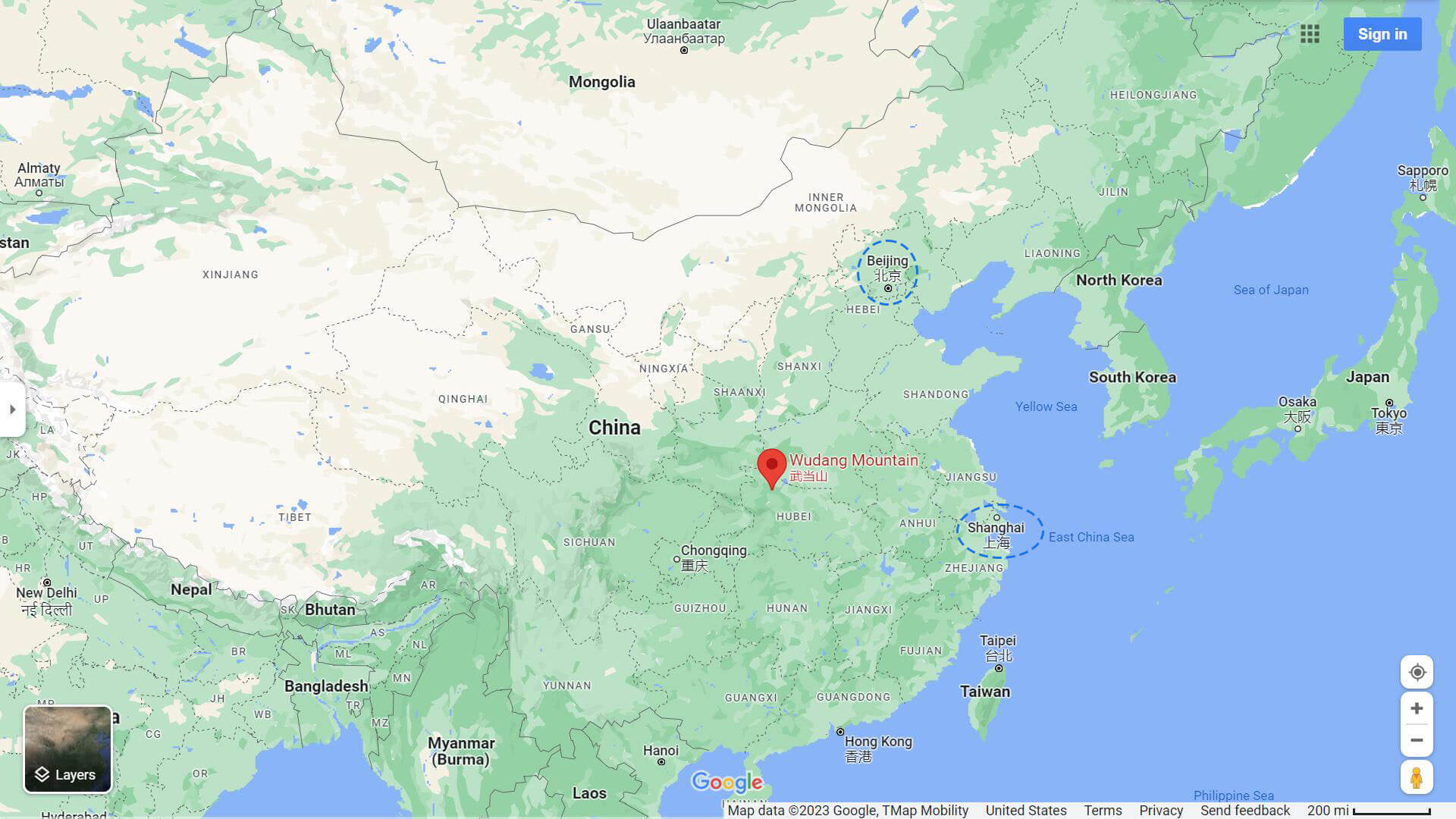
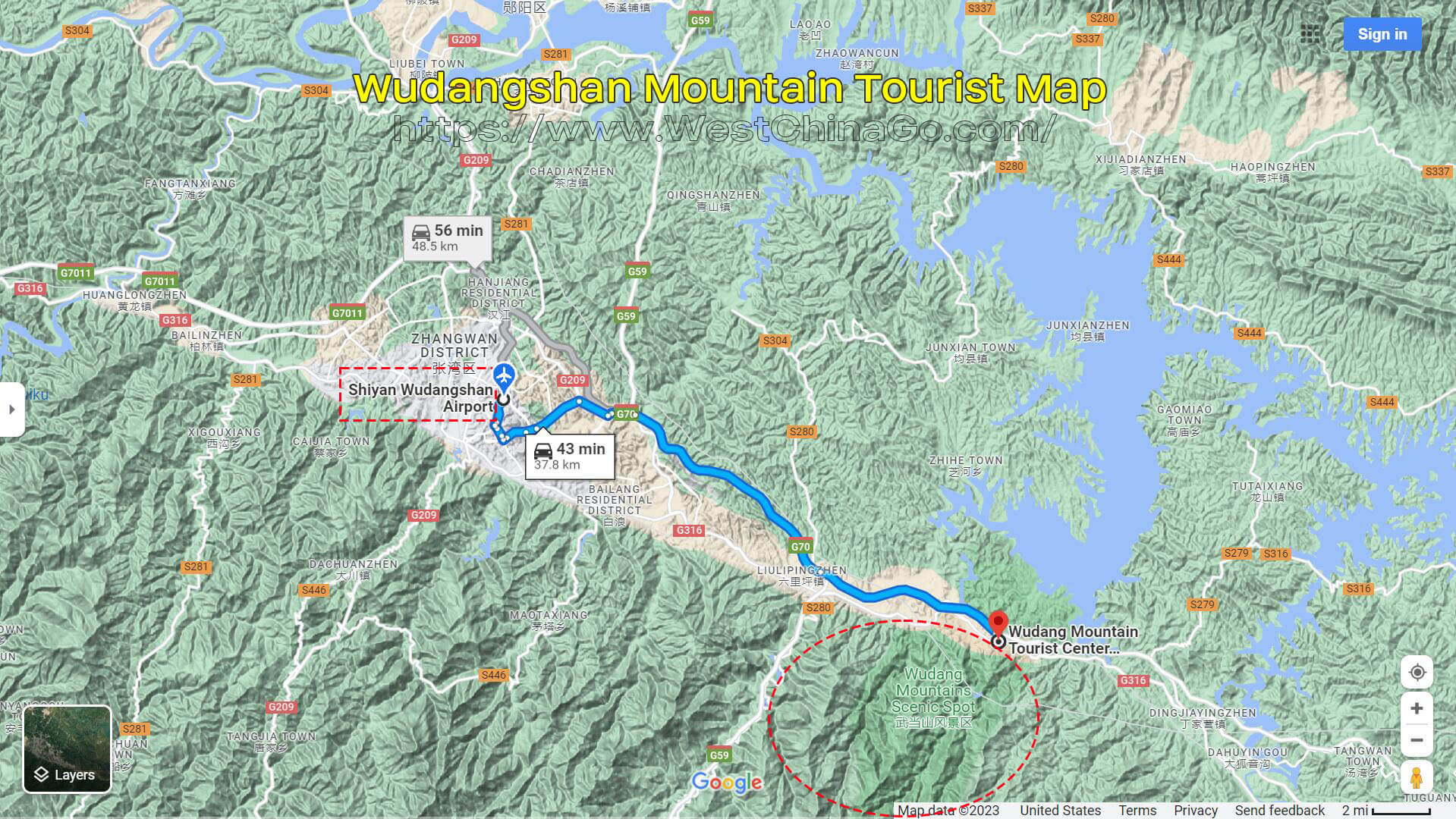
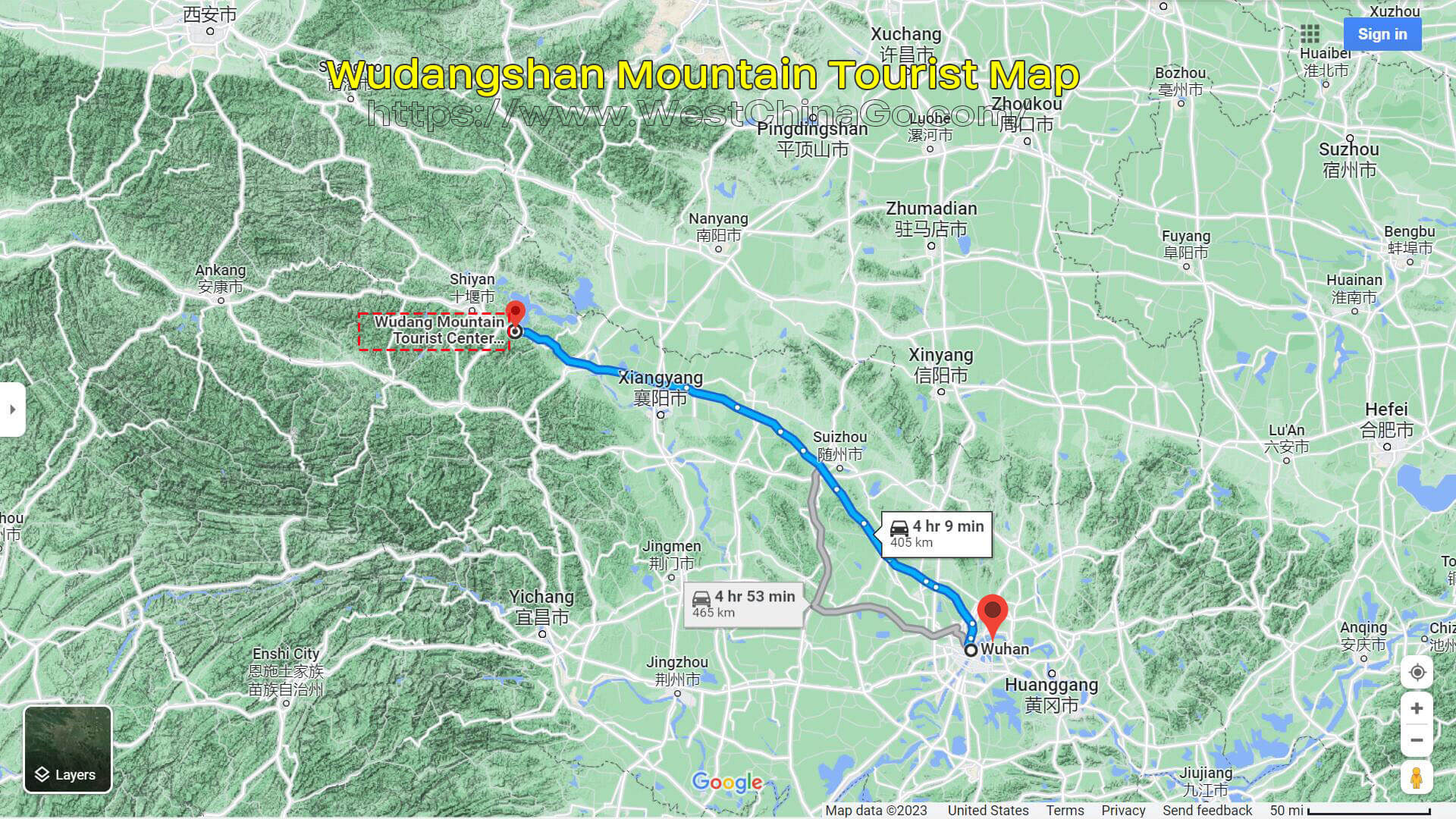
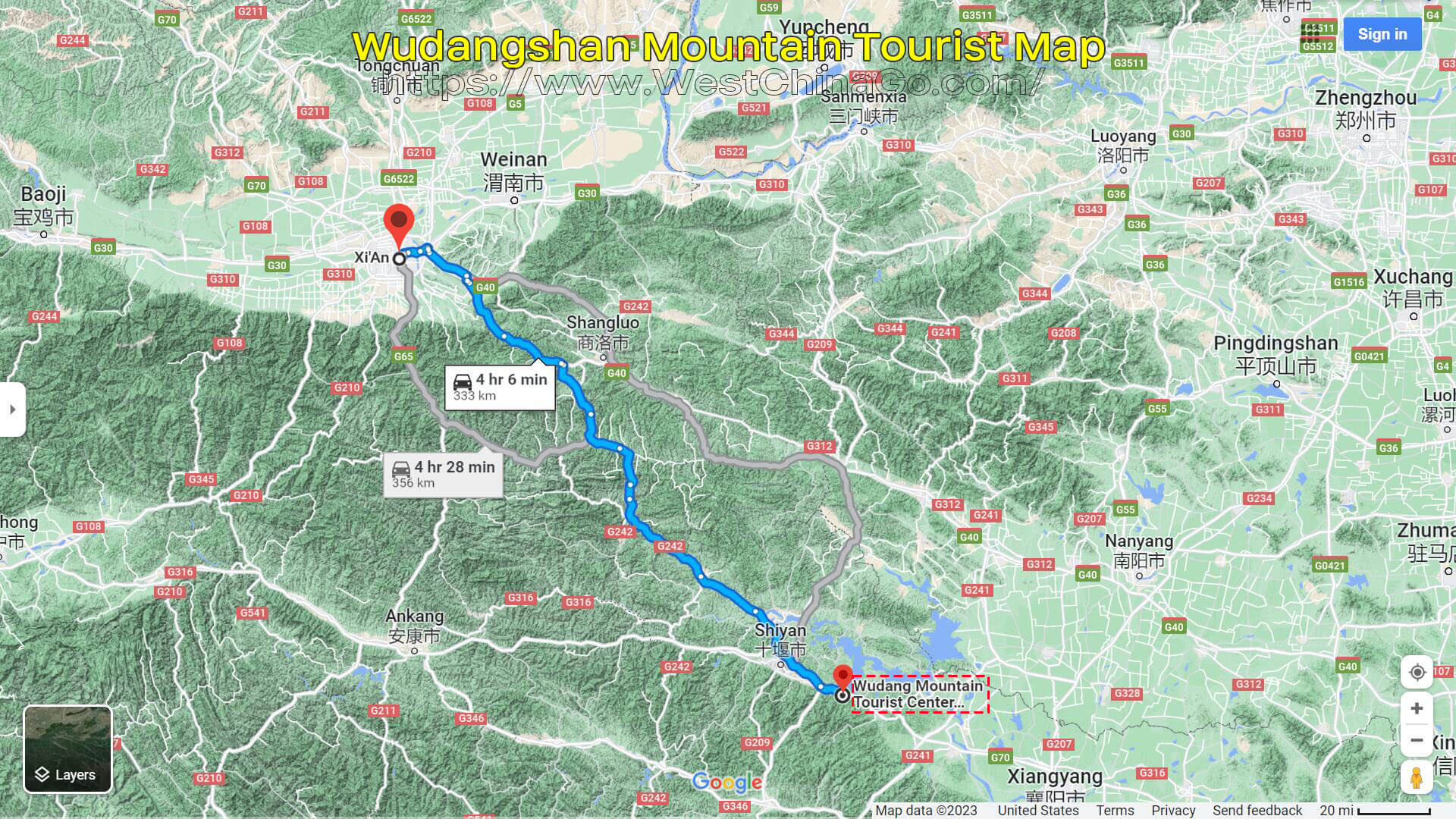
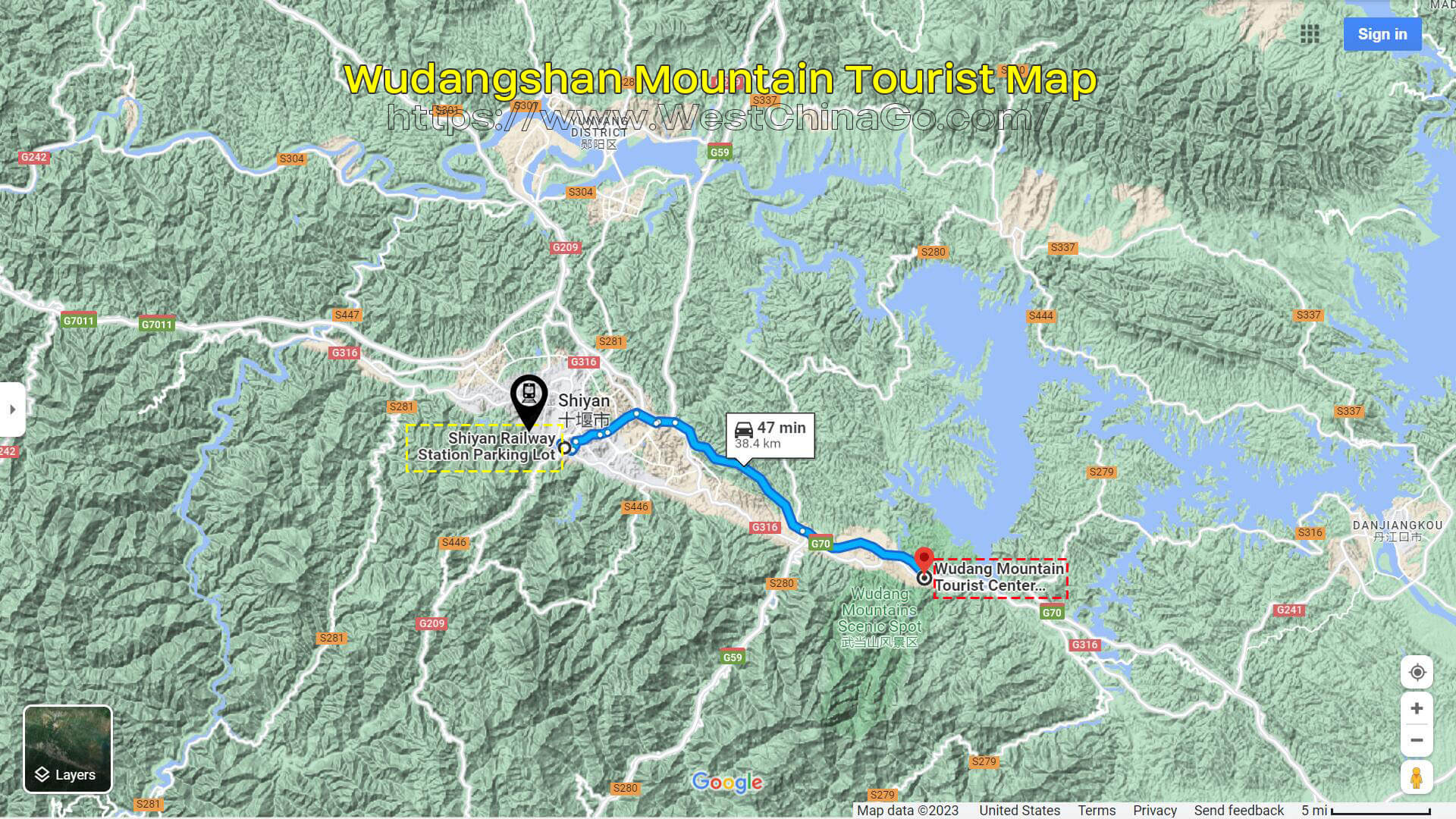
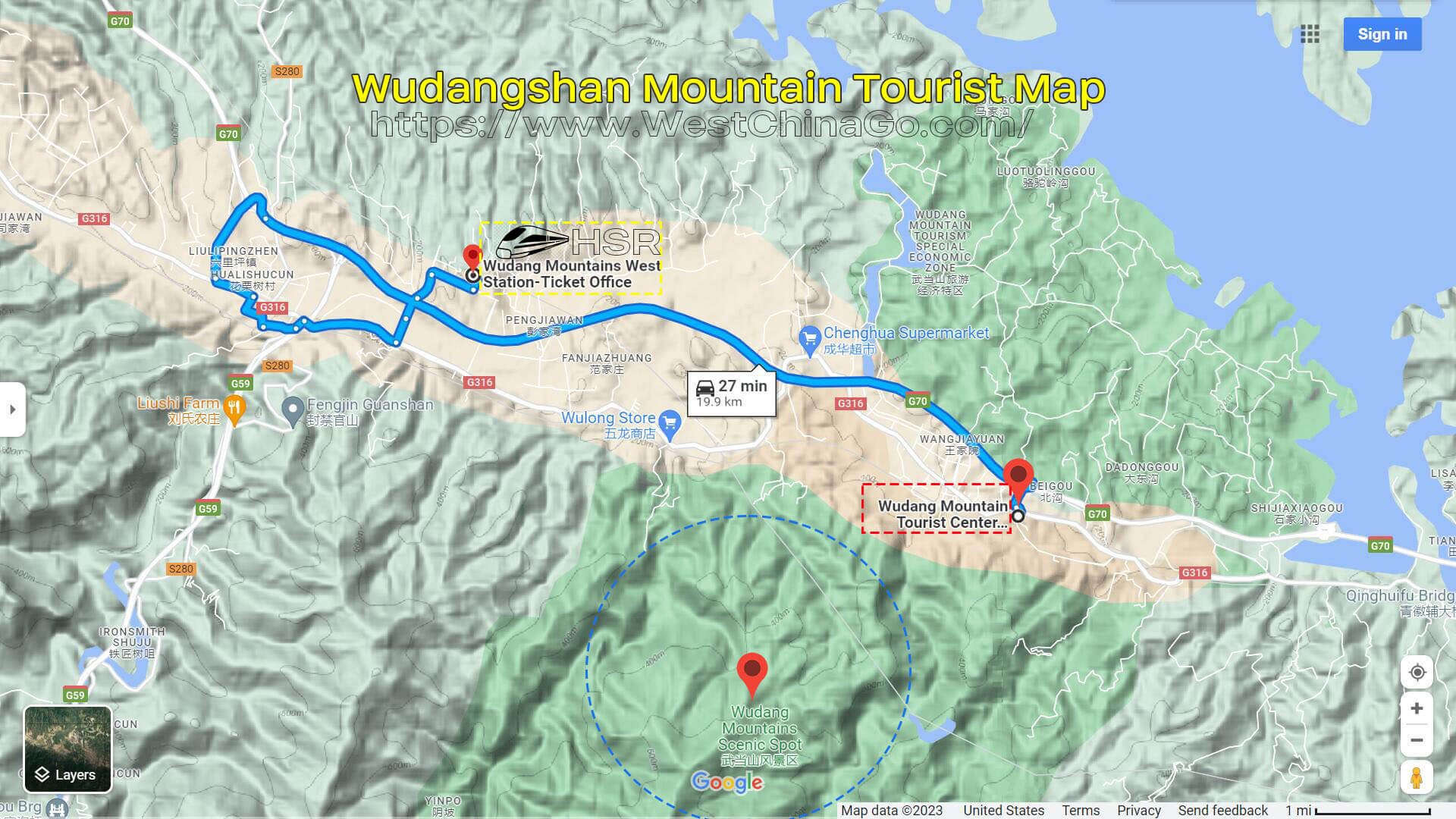
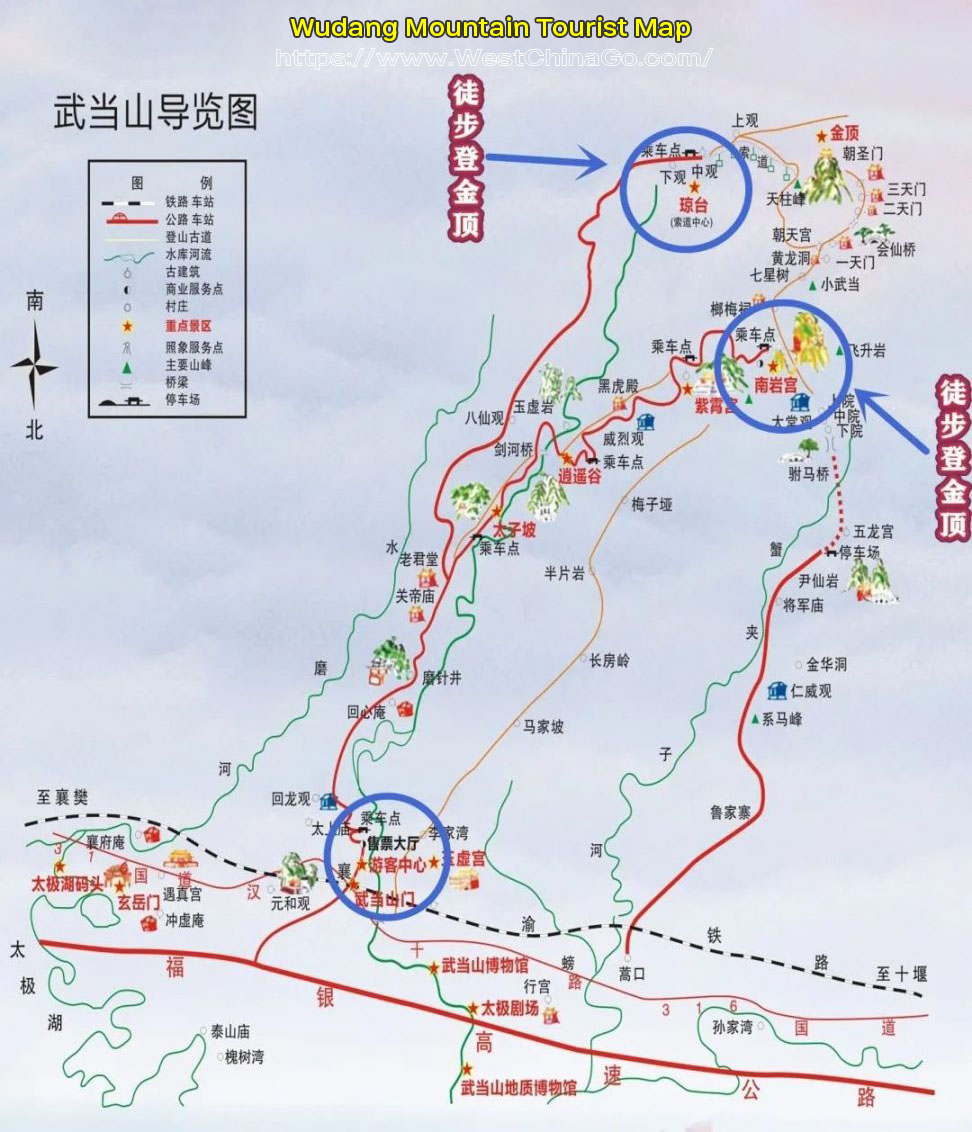
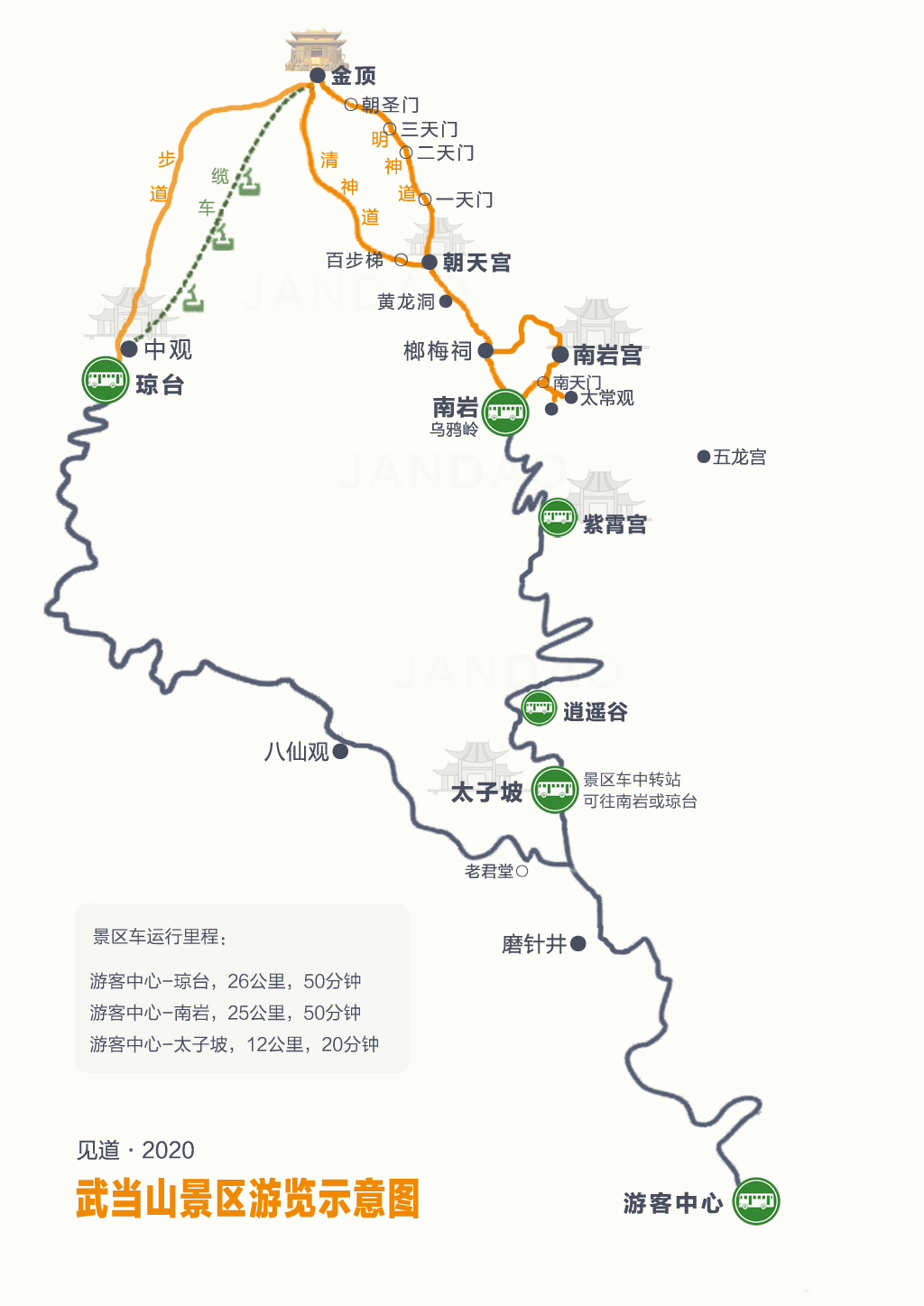
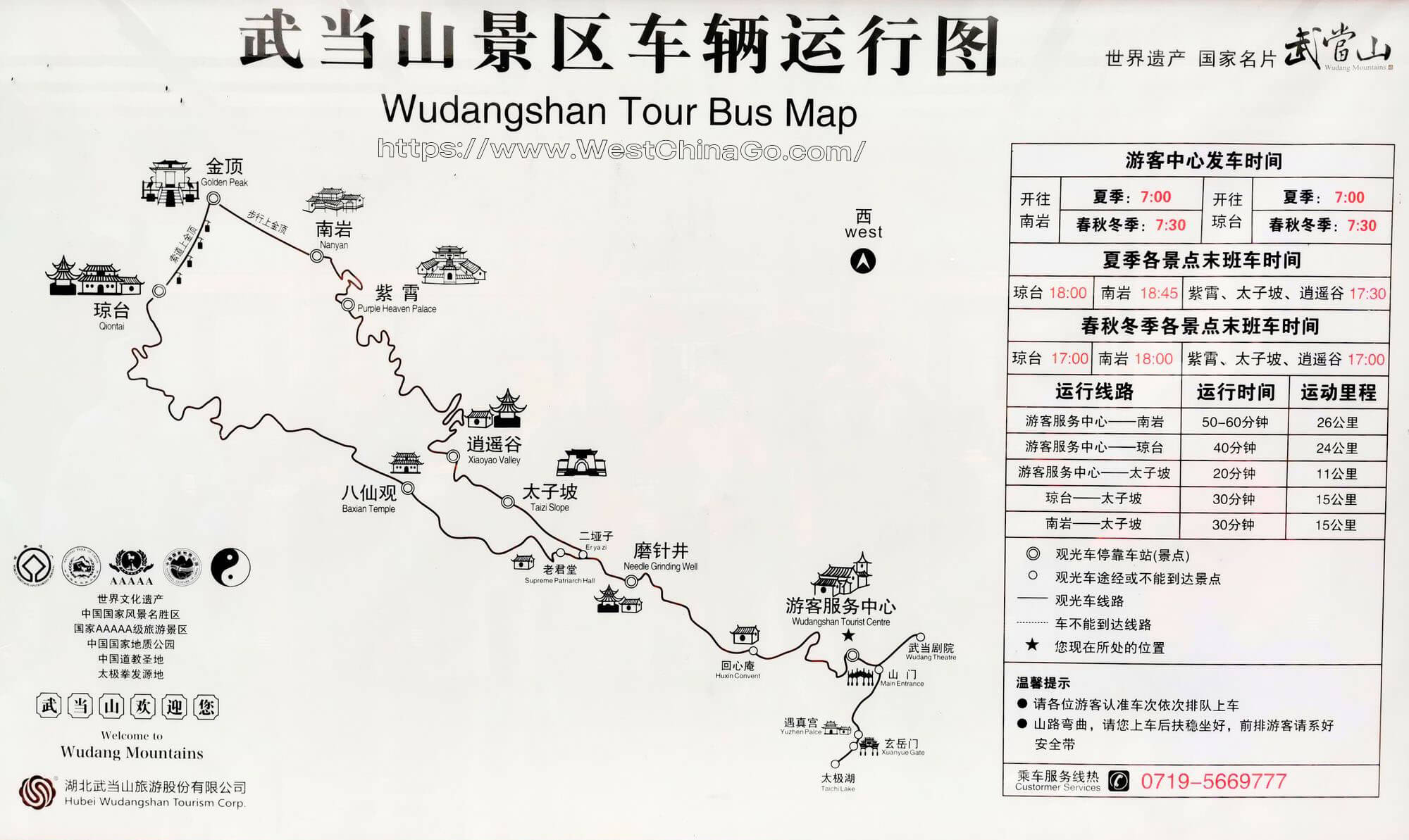
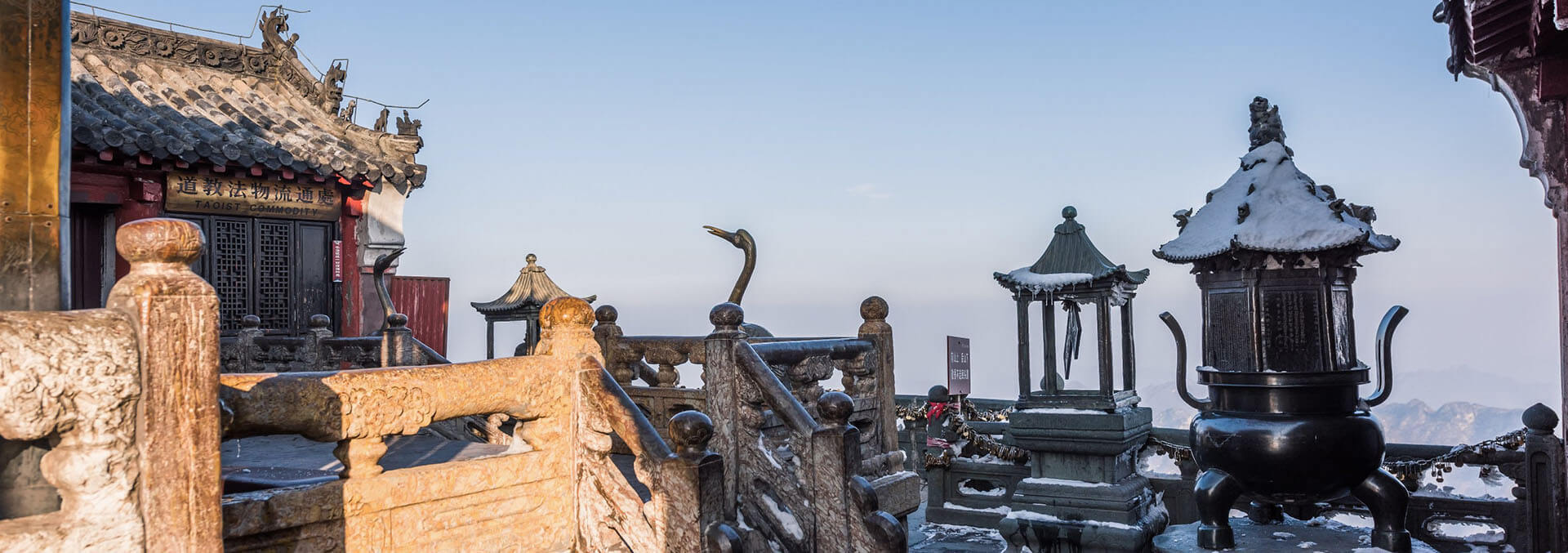
How To Get To Wudang Mountain
There are many ways to come to Wudang Mountain, you can use car, high-speed rail, plane, it depends on your choice according to the departure place and time
- Wudang Mountain Airport: about 30 kilometers away from the gate of Wudang Mountain Scenic Area, it takes about 50 minutes
- High-speed rail Wudang Shanxi Station: The high-speed rail station is about 12 kilometers away from the gate of Wudang Mountain Scenic Area, and the whole journey takes about 20 minutes.
Wudang Mountain Travel Guide
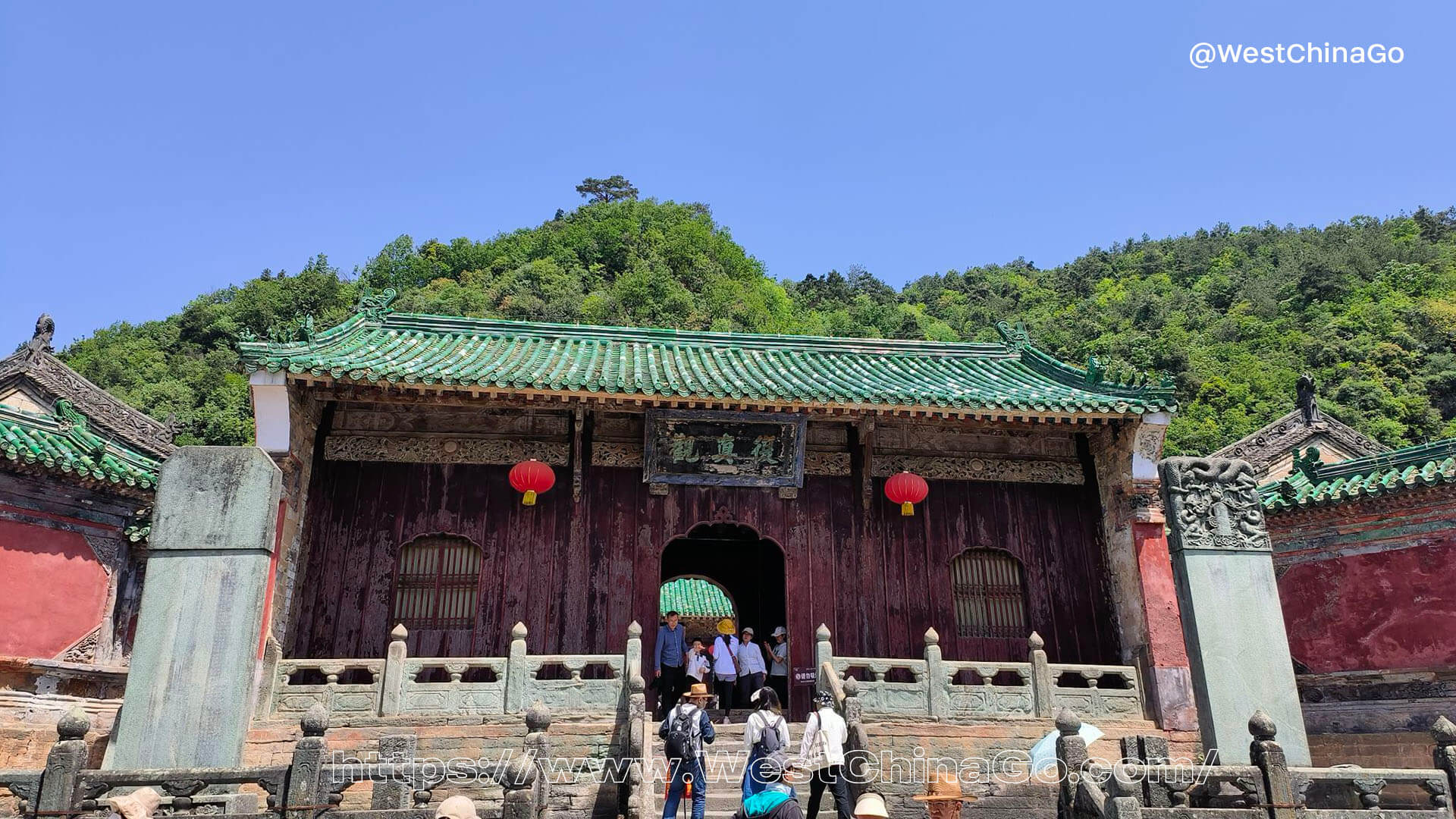
Wudang Mountain Tour Transfer: Car Rental with Driver


- Wudangshan Airport ⇄ Wudangshan Mountain
- Wudangshan Airport ⇄ Wudangshan Taoist Traditional Martial Arts School (Kungfu Academy)
- Wudangshan HSR ⇄ Wudangshan Mountain
- Xi’an ⇄ Wudangshan Mountain
- Wuhan ⇄ Wudangshan Mountain
- Wudangshan Hotel ⇄ Wudangshan Zixiao Palace…
- …….
